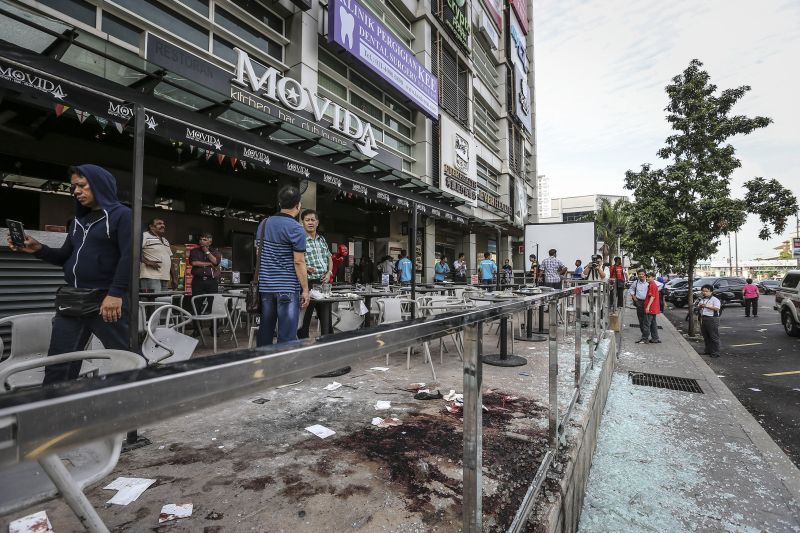KUALA LUMPUR, April 16 — Almost 400 people have been arrested in Malaysia for Islamic State-linked activities since 2013, Datuk Seri Najib Razak said today.
“There has so far been only one successful Daesh-linked attack in Malaysia; thankfully no lives were lost, but we had to be prepared.
“In fact, from 2013 until now, 389 people have been arrested in Malaysia for Daesh-linked activities,” the caretaker prime minister told the Putrajaya Forum, held during the Defence Services Asia (DSA) 2018 Exhibition and Conference. Daesh is another acronym by which Islamic State (IS) is also known.
In June 28, 2016, an attack took place at the Movida nightclub in Puchong and eight people were injured.
The incident was recognised as the first successful IS-linked terror attack on Malaysian soil.
The High Court last year sentenced two men to 25 years’ jail each for committing the terrorist act after detonating a grenade at the entertainment centre.
Judicial Commissioner Datuk Nordin Hassan handed down the sentence on unemployed Imam Wahyudin Karjono, 21, and factory operator Jonius Ondie @ Jahali, 25, after they changed their plea to guilty.
The court also sentenced Imam Wahyudin and Jonius to 10 years’ jail each for supporting the terrorist act.
Najib said that 95 Malaysians have joined IS militant movements in both Syria and Iraq, and that 34 of them died in conflict zones. Nine of those were suicide bombers.
Elaborating on the steps taken by Putrajaya to shore up national security, Najib added that the government also stepped up its protection efforts for the public, by formulating the Anti-Fake News Law 2018, which was gazetted on April 11.
“This can certainly pose a security threat, and we have seen many instances around the world where, contrary to the Zopfan principles, fake news has been used as a tool of interference, which strangely some Opposition leaders now say they welcome!” he added.
Najib said that he and other Cabinet members will not compromise on the country’s sovereignty by allowing “other countries or individuals” to tell Malaysians “what to do and who to choose”.
He added that Malaysia’s future is only for its people to decide, and the citizens, therefore, should only make their decisions based on facts, and not “lies, propaganda, false promises and illusions.”



















